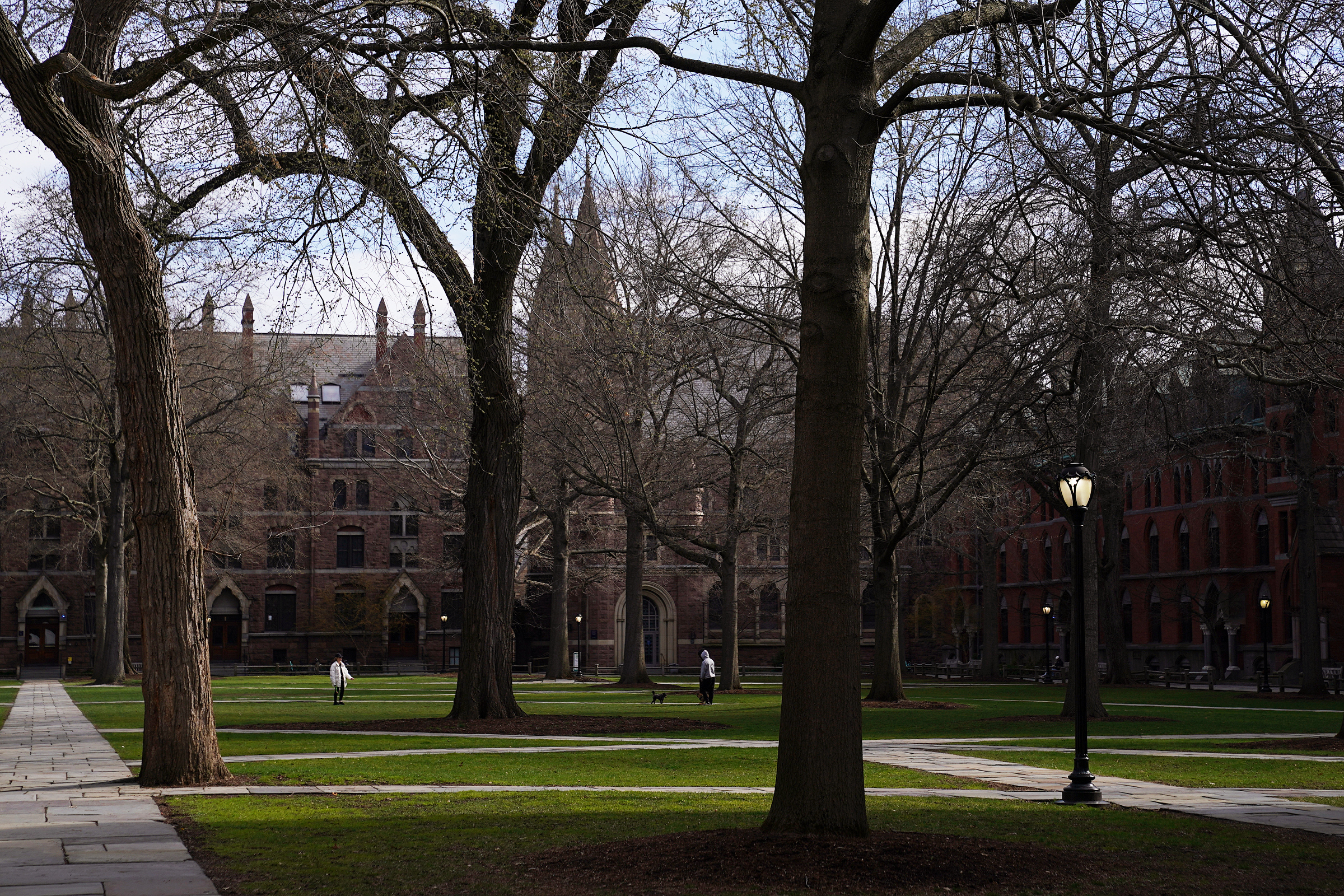Jewish Yale faculty sign letter denouncing Trump’s attacks on pro-Palestine dissenters
The statement, which rejected “cynical” claims of antisemitism, urged universities across the U.S. to resist federal actions like the arrest of Mahmoud Khalil and to protect university members’ right to free speech.

Tim Tai
Dozens of Jewish Yale affiliates, including 30 faculty members, signed a statement calling for university leaders to resist President Donald Trump’s targeting of pro-Palestinian dissenters under the guise of combating antisemitism.
The statement, titled “Not In Our Name,” was drafted by the Boston chapter of Concerned Jewish Faculty & Staff and first circulated on March 11. Nearly 3,000 faculty, staff and students at universities across the United States have signed the letter.
“We are united in denouncing, without equivocation, anyone who invokes our name — and cynical claims of antisemitism — to harass, expel, arrest, or deport members of our campus communities,” the letter reads.
The statement specifically called out the arrest of Columbia University alumnus Mahmoud Khalil as an attack on political dissent that uses “Jews as a shield.”
Khalil, a permanent legal U.S. resident, was arrested on March 8 by Immigration and Customs Enforcement agents for his role as a lead negotiator for the pro-Palestine encampment at Columbia last spring. While Khalil has not been charged with any crime, he is currently detained in Louisiana and faces deportation.
“I might not agree with much of what Mahmoud Khalil has said, but if we allow agents to come knock on the door at any time and take away anyone for non-violently expressing their opinions, we’ve descended into a reign of terror,” Marci Shore, a statement signatory and professor of Eastern European history, wrote to the News. “And we need to stand in solidarity to protect one another’s rights.”
Shore also drew parallels between the Trump administration’s actions and the history of the Soviet Union. She warned that the illegal deportation of a critic of Israel under the guise of protecting Jewish people from antisemitism could itself provoke antisemitic violence, “whereupon Jews can be scapegoated for the violence carried out by a fascist administration.”
In response to Khalil’s arrest, signatories of the statement called on their respective universities to “devote institutional resources to free Mahmoud Khalil,” to protect other community members targeted by the Trump administration and to “cease any voluntary collaboration with federal immigration enforcement.”
The letter also urged universities to “reject the dangerous narrative that pro-Palestinian advocacy, in which many Jews have participated, is presumptively anti-Jewish.” Rather than partnering with organizations like the Anti-Defamation League, the letter argues, universities should “meaningfully address antisemitism” by engaging with Jewish stakeholders.
The ADL gave Yale a grade of ‘D’ on its 2025 Campus Antisemitism Report Card and filed a complaint last year with the U.S. Department of Education that Jewish and Israeli students face harassment on Yale’s campus. Yale is one of 60 universities currently under investigation by the Education Department for failing to address antisemitic discrimination and harassment.
A University spokesperson previously wrote to the News that Yale has “long been committed” to combating antisemitism.
The letter’s demand for universities to democratize governance comes at a time when Yale faculty have revived efforts to increase their role in university decision-making and push for more vocal leadership from administrators.
“President McInnis has met with Jewish community members several times in different forums,” a University spokesperson wrote to the News. “The university has been communicating with international students and scholars and has provided them with protocols on how to respond to law enforcement personnel if approached.”
The Yale Office of International Students and Scholars outlines non-citizens’ rights and risks when engaging in protests on its website.







